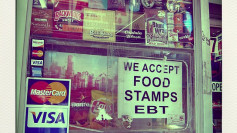A coalition of 21 states, Washington, D.C., and several advocacy groups filed lawsuits Monday against the Trump administration, challenging a new Education Department rule that limits eligibility for the federal Public Service Loan Forgiveness (PSLF) program. The rule, finalized last week, redefines which employers qualify under the initiative, excluding organizations deemed to engage in "unlawful activities" such as "abetting illegal immigration" or "supporting gender transition for minors."
The lawsuits, led by New York Attorney General Letitia James, argue that the rule represents a politically motivated effort to penalize public servants and nonprofit workers whose missions conflict with President Donald Trump's ideology. "Public Service Loan Forgiveness was created as a promise to teachers, nurses, firefighters, and social workers that their service to our communities would be honored," James said. "Instead, this administration has created a political loyalty test disguised as a regulation."
The Public Service Loan Forgiveness program, signed into law in 2007 by President George W. Bush, forgives the remaining student debt of borrowers who work in public service or at qualifying nonprofit organizations for at least 10 years. The Education Department's revision, which takes effect in July, narrows that definition and introduces new ideological criteria that critics say will disqualify thousands of borrowers.
Advocates and state officials say the rule could deny loan forgiveness to "teachers in states with inclusive curricula, health professionals providing gender-affirming care, or legal aid attorneys representing immigrants," according to the complaint. "It is unjust and unlawful to cut off loan forgiveness for hardworking Americans based on ideology," James said, vowing to protect New York's public servants "for doing their jobs or standing up for our values."
Under Secretary of Education Nicholas Kent defended the rule as "a commonsense reform" that prevents taxpayer funds from subsidizing "organizations involved in terrorism, child trafficking, and transgender procedures that are doing irreversible harm to children." He added that the department would "enforce it neutrally, without consideration of the employer's mission, ideology, or the population they serve."
The lawsuit, joined by attorneys general from California, Massachusetts, Washington, Oregon, and other Democratic-led states, seeks to block the rule before it takes effect. A second suit, filed by nonprofit groups including Protect Borrowers and Democracy Forward, also asks the court to strike down the regulation, calling it a "blatant violation of the Higher Education Act."
"This administration has, yet again, unlawfully targeted people who work in the public interest," said Skye Perryman, president and CEO of Democracy Forward. "Politically motivated retaliation, like what the administration has done here, should have no place in America."
The Public Service Loan Forgiveness program has long been a flashpoint in education policy debates. The Biden administration had expanded eligibility and streamlined the application process, resulting in more than one million borrowers receiving forgiveness, according to a 2024 White House fact sheet. The Trump administration's move reverses many of those provisions, reigniting partisan battles over the role of public service incentives and federal oversight in student debt policy.
Boston Mayor Michelle Wu, whose city joined the lawsuit alongside two major teachers' unions, said the rule threatens to "make higher education even more expensive for Boston's teachers, first responders, and civil servants."






